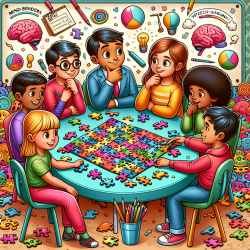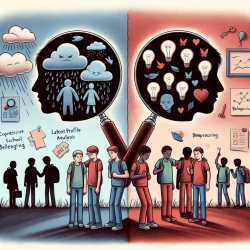The concept of collective consciousness extends beyond individual cognition to encompass the shared understanding and behaviors within organizations. This idea becomes particularly relevant when examining systemic failures in public health responses, such as those observed in the AIDS epidemic in the United States. By exploring these failures through the lens of collective consciousness, practitioners in education and therapy services can gain valuable insights into improving their skills and addressing systemic challenges.
Understanding Collective Consciousness
Collective consciousness refers to the shared beliefs and knowledge within a group that influence its behavior and decision-making processes. In organizations, this manifests as institutional cognition, where multiple cognitive processes operate simultaneously. This multitasking capability can reduce inattentional blindness but also introduces new failure modes related to communication between workspaces.
The research article "Collective consciousness and its pathologies: Understanding the failure of AIDS control and treatment in the United States" highlights how institutional cognition can lead to both successes and failures. The study emphasizes the importance of understanding cultural and historical contexts that shape organizational behavior.
Applying Insights to Education and Therapy Services
Practitioners in education and therapy services can apply these insights by recognizing the impact of collective consciousness on institutional effectiveness. Here are some strategies to consider:
- Cultural Awareness: Understand how cultural contexts influence organizational behavior. This awareness can help practitioners tailor interventions that align with the cultural values of students and their families.
- Communication Enhancement: Improve communication channels within educational institutions to reduce distortion and enhance collaboration among different departments and teams.
- Addressing Pathological Resilience: Identify areas where institutional inertia or rigid policies hinder progress. Encourage flexibility and adaptability in response to changing needs.
The Role of Further Research
The research on collective consciousness provides a foundation for further exploration into how these concepts apply to educational settings. Practitioners are encouraged to engage in ongoing research to deepen their understanding of institutional cognition and its impact on therapy services.










